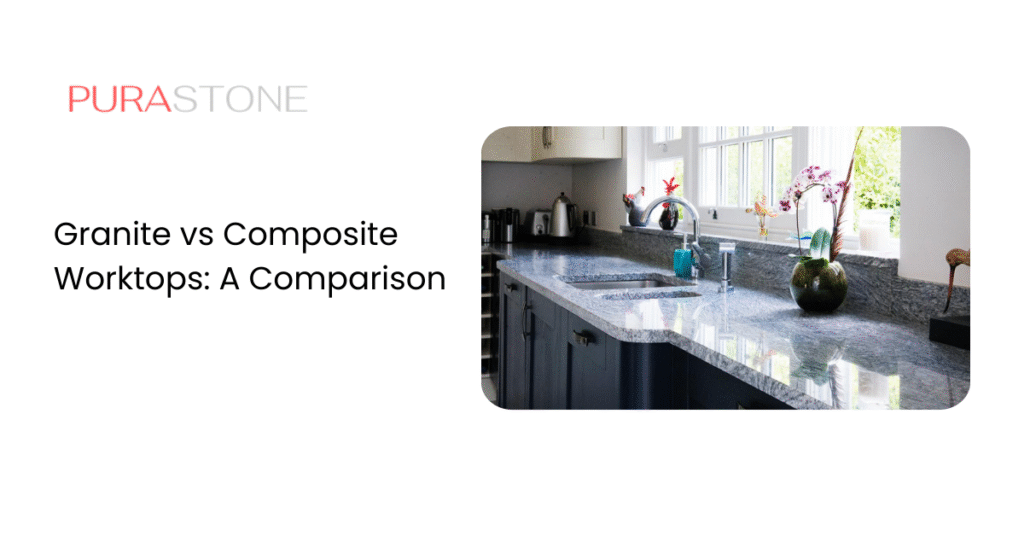Choosing the appropriate worktop is one of the key aspects of designing a kitchen which is both fashionable and practical. The worktop selected has a significant effect on both design and daily usage. Two of the most popular products on the market today are granite worktops and composite worktops.
Both materials possess unique benefits, providing a durable, attractive appearance and lasting value. To make a knowledgeable decision, one must realise how the surfaces vary in appearance, strength, maintenance, and price.
What are Granite Worktops?
Granite work surfaces are cut from pieces of natural, solid stone quarried from the ground. Each worktop has its own individual personality, with its own pattern and colour that cannot be repeated. This natural aesthetic is a significant factor in their popularity, giving kitchens a classic, elegant look.
Practical benefits also make granite appealing. It resists scratches, tolerates heat, and performs well in busy households. However, granite does require occasional care. To protect against stains and maintain shine, sealing is necessary. While durable, it may chip if struck with force.
Even so, granite continues to be a highly sought-after option for those who value luxury and individuality in their kitchen surfaces.
What is a Composite Worktop?
Most homeowners would like to know what a composite worktop. Such worktops, otherwise referred to as composite stone worktops, are manufactured by combining natural stone fragments with resins and pigments. Production results in a tough, non-porous worktop providing both durability and design.
A composite granite worktop has significant advantages which make it stand out. It is resistant to moisture, bacteria, and stains, which makes it remarkably hygienic. It does not need sealing, unlike granite, which makes maintenance a breeze.
Cleaning is simple, usually involving a mild solution. It has a high design range, too, with colours and patterns which can be customised to complement nearly every kitchen design.
Important Differences Between Granite and Composite Worktops
Although both materials enhance the kitchen environment, certain differences stand out:
- Appearance: Granite has distinct natural patterns, while composites have even tones and surfaces.
- Durability: Both are durable, although the composites are less prone to chips and cracks.
- Care: Granite demands occasional sealing, but composites are virtually maintenance-free.
- Hygiene: Composites are less susceptible to bacteria because they are non-porous.
- Cost: Granite tends to be pricier, whereas composites tend to be cheaper.
Which one is better to select?
This mostly relies on personal choice and lifestyle. Granite is suitable for people who value natural beauty and are not averse to some maintenance. On the other hand, composite stone worktops are perfect for people who are looking for a hygienic, low-maintenance, and versatile option.
Final Thoughts
Both granite and composite provide durability and elegance, making either option a worthwhile investment. By weighing up maintenance needs, design goals, and budget, the perfect surface can be selected. With either granite or a composite granite worktop, any kitchen gains a finish that is practical, stylish, and long-lasting.

